Speakers
Speakers
Alex E. Crosby, was raised in Detroit, Michigan. He is the son of Emeral and Corene Crosby and is a husband and father of four children. He graduated with a BA in chemistry from Fisk University, an MD from Howard University’s School of Medicine, and an MPH in health administration and management from Emory University’s School of Public Health. He completed training programs in Family Medicine then General Preventive Medicine and Public Health and epidemiology.
He has responded to numerous public health emergencies and led investigative teams, addressing adolescent suicide clusters, civil unrest, school-associated violence, sniper attacks, and firearm-related injuries due to celebratory shooting, Hurricane Rita, and Ebola. He has authored or co-authored over 100 publications. His work as a medical epidemiologist focuses on prevention of suicidal behavior, child maltreatment, intimate partner violence, interpersonal violence among adolescents, and assault injuries among minorities.

Captain (CAPT) Shary Jones, Pharm D., MPH, BCPS, is a U.S. Public Health Service Commissioned Corps Officer who serves as the Acting Regional Health Administrator (RHA) for the U.S. Department and Health Human Services, Office of the Assistant Secretary for Health in Region 7.
Prior to joining Region VII in June 2014, as the Deputy Regional Health Administrator, CAPT Jones served as a public health advisor in the National Vaccine Program Office (NVPO). Her experience is extensive ranging from public health to HIV/AIDS and health policy. She is also a Board Certified Pharmacotherapy Specialist and certified immunizing pharmacist. CAPT Jones completed an ASHP accredited specialty residency in geriatrics at Alamance Regional Medical Center in Burlington, NC and is a graduate of the Howard University College of Pharmacy and the Johns Hopkins Bloomberg School of Public Health.
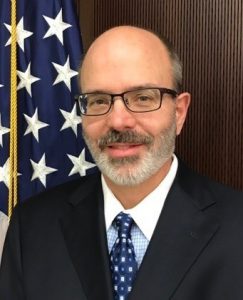
Wm. Jeff Kahrs was appointed Regional Director of Region 7 of the U.S. Department of Health and Human Services in November 2017. As a presidential appointee, Kahrs provides executive leadership as the primary representative for the Secretary of Health and Human Services. In this role, Kahrs oversees HHS activities in Iowa, Kansas, Missouri, and Nebraska, and represents the department in its work with nine federally recognized tribes. The Office of the Regional Director, based in Kansas City, Mo., also has responsibility for intergovernmental and external affairs, which brings together federal, state, local and tribal governments and private-sector partners.
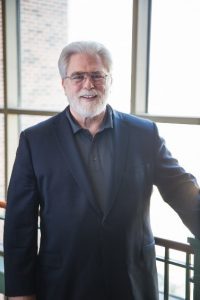
Dr. Rex Archer serves as Director of Health for the City of Kansas City, Missouri. In addition to serving as Vice Chair of the Public Health Accreditation Board (PHAB) and Chairing PHAB’s Accreditation Improvement Committee, he is a past president of the National Association of County and City Health Officials (NACCHO), and recently received NACCHO’s Maurice “Mo” Mullet “Lifetime of Service Award.” He is responsible for safeguarding the public health of nearly half a million residents and a daytime population of almost one million people.
Dr. Archer completed his medical degree at the University of Kansas and his General Preventive Medicine Public Health Residency and Masters in Public Health degree at the University of Michigan. He is recognized as a Public Health Leadership Institute Scholar by UCLA/CDC. He has served as Physician in Charge of Employee Health Programs for the Ford Motor Company.
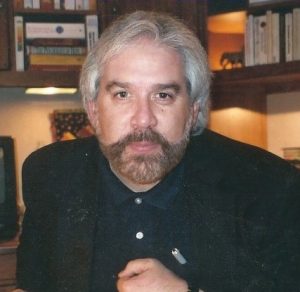
Dr. Bill Geis is the Director of Behavioral Health Research and Assistant Professor of Psychiatry at the University of Missouri, Kansas City. He was Clinical Director of Truman Medical Center Behavioral Health for a decade, and he started housing, homeless, substance abuse, corrections and advanced assessment services during this tenure.
He has been involved in over $12 million dollars in research and demonstration projects pertaining to suicide prevention, enhanced suicide care, homelessness, early life trauma and substance abuse during his career. He is the Science and Training Director for the Kansas City Suicide Awareness and Prevention Program and was previously the Clinical Division Director of the American Association of Suicidology. He obtained his Ph.D. in Clinical Psychology from the University of Kansas. He and his wife, Kathy, a children’s services attorney, are the parents of two grown children.
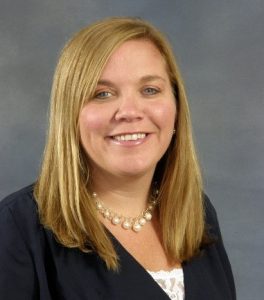
Julia Hebenstreit is the Executive Director of The Kim Foundation. She received her J.D. from Creighton University in 2005, and her BS in Journalism from the University of Nebraska Omaha in 2002. She has been with The Kim Foundation since December of 2011, and prior to that worked for local non-profits doing development, strategic planning, communications and advancement. She has a passion for helping people and improving lives, and serves as the President for the Nebraska Association of Behavioral Health Organizations, and the National Council for Behavioral Health’s Hill Day State Captain since 2015. She is also an active member of the Nebraska Suicide Prevention Coalition, Metro Area Suicide Coalition, Connections Advisory Committee, RESPECT Advisory Board, and BHECN’s Advisory Committee.

Pat McGovern is the Suicide Prevention Director and Data Manager in the Bureau of Substance Abuse at the Iowa Department of Public Health. He leads the Zero Suicide Iowa project and formerly led Iowa’s GLS grant. Pat chairs both the Iowa Suicide Prevention Planning Group and Iowa’s State Epidemiological Workgroup/Prevention Partnership Advisory Council. He consults on Your Life Iowa, a state resource and helpline similar to the National Suicide Prevention Lifeline with more topics, and serves on several committees on suicide prevention and data management.

Stacey Williams is the Suicide Prevention Coordinator for Missouri Department of Mental Health (DMH). She is the state lead for suicide prevention activities including; managing the Show Me Zero Youth Suicide Prevention Grant and the recently awarded Zero Suicide grant. Stacey has a Master’s Degree in Social Work, with an emphasis in Policy, Planning and Administration from University of Missouri. She is a Licensed Master Social Worker (LMSW) with certification as a QPR Instructor, Mental Health First Aid Instructor, and an Advanced Level WRAP® Facilitator. She has over ten years’ experience working in the field of mental health. She brings forth experience in state government, residential and community mental health settings with experience in both policy and clinical practice. Outside of work, you can catch Stacey hiking or spending time outdoors with the ones she loves including her husband Chris, twelve-year old son, Camden and two dogs: Bella and Neo.

Susan Crain Lewis is the President/CEO of the Mental Health America of the Heartland, responsible for oversight of all agency programs, finances, operations and personnel, and is the organization’s lead policy and systems advocate. Ms. Lewis received a Bachelor of Arts in Sociology with a minor in Women’s Studies from Allegheny College, and a Master of Science in Social Work from the University of Texas at Arlington. She possesses over 30 years of program development, management and implementation experience. She has worked in the fields of domestic violence, mental retardation and developmental disability, family planning, reproductive health and teen pregnancy prevention, mental health and child welfare, and with juvenile delinquents, at-risk youth, and persons with mental illness.

Megan Clark currently serves as a Prevention Coordinator for Johnson County Mental Health Center. She has over seven years of experience working collaboratively with the community on prevention efforts addressing suicide prevention, substance abuse prevention and mental health promotion by focusing on facilitating shared approaches to leverage resources addressing priority concerns to support optimal behavioral health outcomes.
Megan earned her Bachelor of Arts in Criminal Justice with a minor in Sociology from the University of Missouri – Kansas City in 2011. In addition, she maintains an internationally recognized credential as a Certified Prevention Professional (CPP).
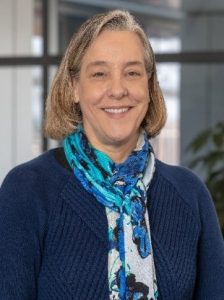
Sharon Freese, is the Chief Operating Officer for Behavioral Health. Sharon provides leadership for Truman Medical Center (TMC) Behavioral Health clinical services, staff competence, financial viability, customer satisfaction and client safety for hospital- and community-based services. She has more than 25 years in nursing, mental health and healthcare leadership experience. She has served the last 26 years with TMC Behavioral Health in a variety of roles including as a clinical nurse manager, director of nursing, associate administrator of inpatient services and most recently, associate administrator for behavioral health quality, patient safety and risk management.
She earned her Bachelor of Science in Nursing from Purdue University in West Lafayette, Indiana and went on to earn her Master of Social Work from the University of Missouri – Kansas City. Sharon is also a Lean Six Sigma Black Belt.

Becky Wiseman, is the Sports Family Therapist within the Sports Medicine Department at Children’s Mercy Hospital. Becky has over 15 years of experience working with adolescences and their families. Becky’s current position is working with athletes who are experiencing a period of adjustment due to injury. Becky works with the athlete on their mental approach to recovery in order to maintain goals and motivation throughout the healing process. Outside of injury, Becky also works with athletes who are encountering anxieties, depressed mood, or struggling with the school, sports, and teenage life balance. The objectives while working with Becky are for the athletes to learn to become aware of their emotions, accept what they are experiencing in the moment, and then move towards what is most important. While working with Becky, athletes will learn to feel empowered rather than victimized by their experiences.